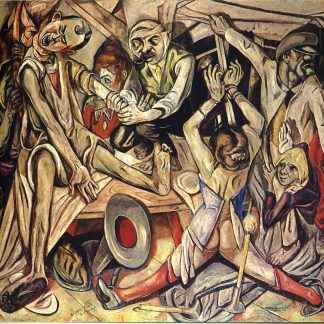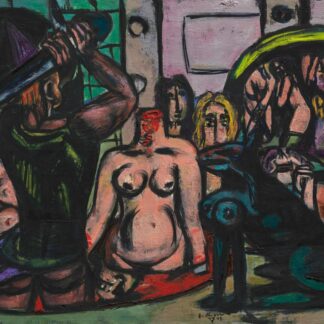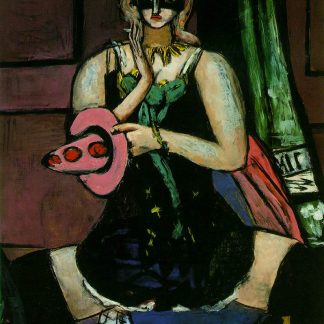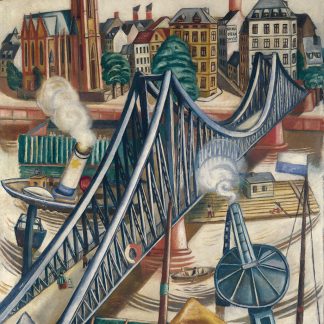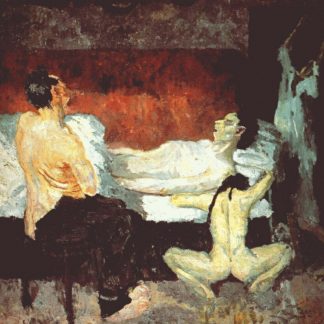Max Beckmann was a German painter who lived and worked during the first half of the 20th century. He was born in Leipzig in 1884 and studied at the Weimar Academy of Fine Arts before beginning his career as an artist. Beckmann was associated with the Expressionist movement, and his paintings are known for their intense emotional power, vivid colors, and bold, often jarring compositions.
Beckmann’s works often depict scenes of everyday life, but they are characterized by a sense of unease and dislocation. His figures are angular and distorted, and his use of light and shadow creates a sense of dramatic tension and uncertainty. Beckmann’s paintings are also marked by their political engagement, and many of his works reflect his experiences during World War I and the rise of fascism in Germany.
Despite facing persecution by the Nazis and being forced to flee Germany in 1937, Beckmann continued to produce powerful works of art until his death in 1950. Some of his most famous works include “Self-Portrait in Tuxedo,” “The Night,” and “Departure,” a triptych that depicts the horrors of war and the human toll of conflict. Today, Beckmann is celebrated as one of the great modernists of the 20th century, and his works continue to inspire and challenge viewers with their raw emotional power and uncompromising vision.
Showing all 5 results
-

The Night
Beckmann, Max From $28.69 Select options This product has multiple variants. The options may be chosen on the product page -

Perseuss Last Duty 1949. Oil On Canvas
Beckmann, Max From $28.69 Select options This product has multiple variants. The options may be chosen on the product page -

Columbine
Beckmann, Max From $28.69 Select options This product has multiple variants. The options may be chosen on the product page -

The Iron Bridge
Beckmann, Max From $28.69 Select options This product has multiple variants. The options may be chosen on the product page -

Great Scene of Agony
Beckmann, Max From $28.69 Select options This product has multiple variants. The options may be chosen on the product page
Showing all 5 results

